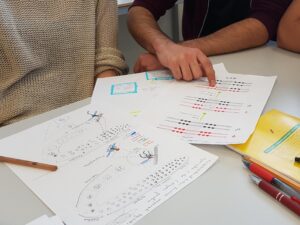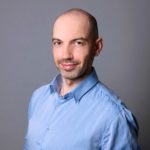Effective Visual Communication of Science
Course description
You will learn to visually communicate your complex research ideas and results so your messages are effortlessly understood by any specific audience (scientists or non-scientists). We will not focus on aesthetics but on how knowledge on human visual perception can help you create effective scientific images, slides, and posters.
You will design a graphical abstract of your research, discuss it with peer scientists in a group exercise, and get actionable advice and feedback on your own images and slides. It is an immersive workshop, comprehensive, structured, memorable, easy to follow, useful and fun.
Content

Self-study
- Communicating with scientific vs non-scientific audiences
- Visual perception and what humans find intuitive
- Layout: simplifying comprehension through a structured layout
- Eye-flow: effortlessly guide the audience through the design
- Colors: how to amplify, not ‘fancify’
- Typography for legibility, structure and aesthetics
- Slides that amplify messages and don’t distract when presenting
- Posters: strategy and process for creating posters that attract and explain
- Homework: you submit your images and slides for feedback
Online Workshop
- Recap and Q&A: an effective review of self-study topics and optional 1-on-1 consulting with facilitator to address your individual challenges.
- Feedback on submitted materials: you will get actionable suggestions on how to improve your own scientific images and slides.
- Graphical abstract drawing exercise: you will draw a sketch of your research
- Group peer-instruction exercise: we make groups so everyone learns to give and receive informed feedback to peers.
Learning objectives
- Distinguishing between communicating with scientific vs non-scientific audiences
- Describing the principles of visual communication and recognizing them in figures, slides, and posters
- Applying useful design approaches used by experts (layout, eye-flow, color) to any drawings and sketches
- Visually present your research message
Lecturer
Dr. Jernej Zupanc, Founder of Seyens Ltd.
“My goal is to help scientists effectively communicate their ideas and findings and make an impact with your research. Teaching and communication are my professional passions.”
Participants
University of Basel PhD students of the Faculty of Medicine and of Swiss TPH.
Min. 10, max. 18 participants
Workload & credits
Total 11 h | workshop 4.5 h + preliminary work 6 – 7 h
Minimal Standards
This is a course from the domain ‘Leadership & Personal Competences’. The main competence is ‘Communication skills’.





